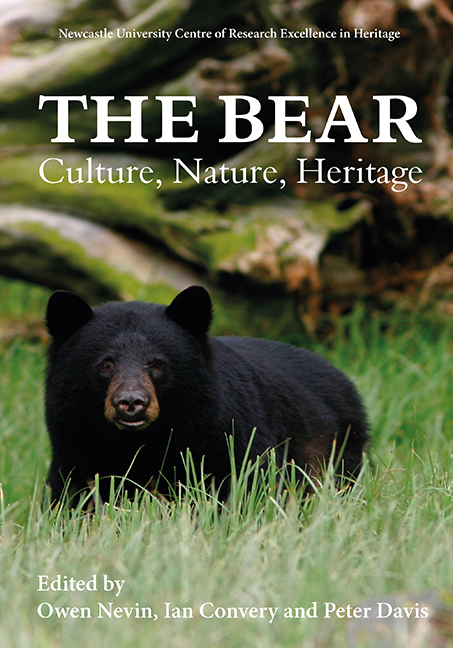Book contents
- Frontmatter
- Contents
- List of Illustrations
- Acknowledgments
- List of Abbreviations
- Foreword: The Bear: A Cultural and Natural Heritage
- Introduction: What is a Bear?
- Bear-People Interactions
- Bears in the Public Gaze
- Bear Biology, Management and Conservation
- Afterword: “It's Me Bear”: Reflections on a Unique Career Working with Bears
- List of Contributors
- Index
- Previous titles
16 - Citizen Science and Bears
Published online by Cambridge University Press: 21 March 2020
- Frontmatter
- Contents
- List of Illustrations
- Acknowledgments
- List of Abbreviations
- Foreword: The Bear: A Cultural and Natural Heritage
- Introduction: What is a Bear?
- Bear-People Interactions
- Bears in the Public Gaze
- Bear Biology, Management and Conservation
- Afterword: “It's Me Bear”: Reflections on a Unique Career Working with Bears
- List of Contributors
- Index
- Previous titles
Summary
HISTORY AND DEVELOPMENT OF CITIZEN SCIENCE
Bears and other large carnivores excite pubic interest and as such might seem like natural candidates for citizen science projects. In reality, however, these charismatic carnivores often live in remote, rugged, difficult terrain; they are often widely dispersed, living at low densities and are cryptic in their habits. Even though public interest in this species is high, the logistics of citizen science projects sometimes render programmes ineffective or too challenging to manage. With thoughtful planning, however, citizen science projects focusing on grizzly bear research can be a positive experience for participants and increase the scope of research databases. As a recent example of this, a 2018 project developed by the Cornell University-based New York Cooperative Fish and Wildlife Research Unit is using data collected by citizen scientists to better understand New York's black bear population size and distribution, and how that distribution relates to forest, agricultural, and urban/suburban landscapes and communities (https://iseemammals. org/). In this chapter, we report on an earlier ‘bear citizen science’ project – Grizzly Research in the Rockies (Elmeligi 2016) – and another more established citizen science programme hosted by Alberta Parks, but first we consider the growth of citizen science.
Put simply, citizen science is the involvement of the public in scientific research; recentlywith smartphones and apps, but amateur naturalists have always played an important role in developing our understanding of nature. Before the emergence of the professional scientist it was provincial naturalists, men such as Gilbert White, who made enormous contributions to natural history (1993). White's 1789 book The Natural History and Antiquities of Selborne was a pioneering work of natural history and place, and remains one of the most frequently published titles in the English language (see also David Allen's The Naturalist in Britain (1976) for an excellent account of the evolution of natural history from the 17th to the early 20th century). Today, the term ‘citizen science’ is increasingly used to describe the involvement of ‘non-expert/non-professional’ scientists in research-related activities. Citizen science is a form of research collaboration where data acquisition is performed by ‘non-expert’ individuals who are often members of the public (Catlin-Groves 2012). Typically, this approach is used for large scale scientific studies (Hart et al 2012) and projects that encourage the public to participate by acting as voluntary field assistants, gathering information to greatly increase datasets (Fowler et al 2013).
- Type
- Chapter
- Information
- The Bear: Culture, Nature, Heritage , pp. 199 - 210Publisher: Boydell & BrewerPrint publication year: 2019



